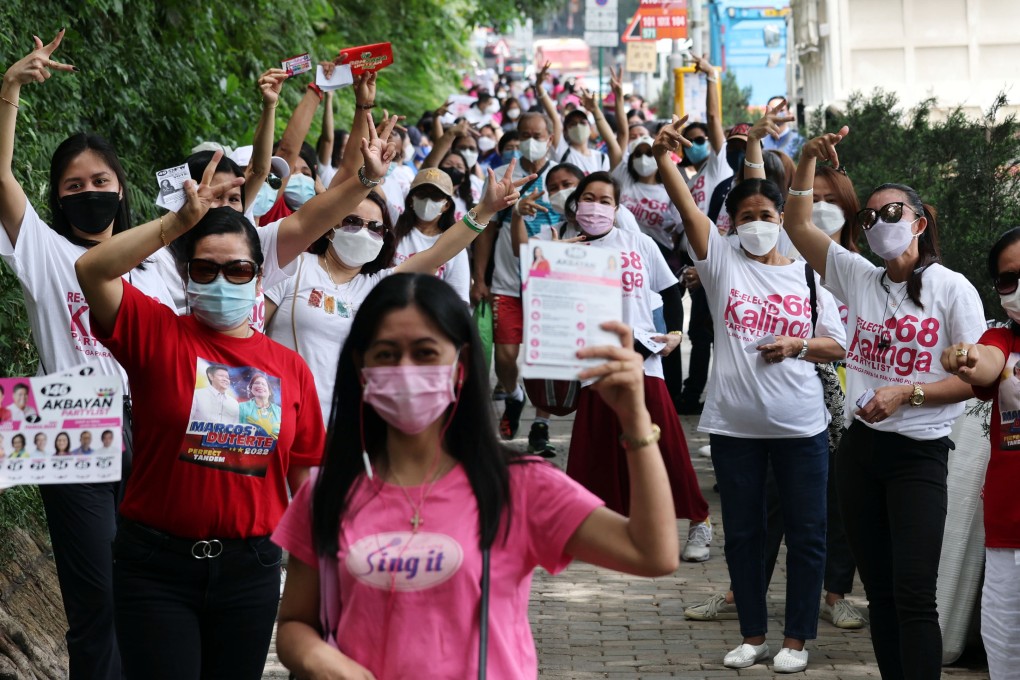Record number of Filipinos cast votes in Hong Kong for candidates running in Philippine presidential election
- Philippine Consul General Raly Tejada predicts 60,000 Filipinos will cast votes in the city, shattering previous record of 52,000 set in 2016
- Professionals appear to back opposition leader Leni Robredo, while domestic helpers gravitate towards front runner Ferdinand “Bongbong” Marcos Jnr

A record number of Filipinos in Hong Kong have cast votes in their country’s presidential election, which has shaped up into a two-way race between Ferdinand “Bongbong” Marcos Jnr and Philippine Vice-President Leni Robredo.
Thousands of Filipinos on Monday thronged the Bayanihan Kennedy Town Centre on Hong Kong Island, with domestic helpers and professional workers mingling with campaign volunteers holding up placards bearing slogans of the competing parties.
The centre served as the sole polling station in the city as the Philippine consulate was closed due to the public holiday. Interviews with a variety of voters suggest that while support for opposition leader Robredo appeared to be stronger among white collar workers, domestic helpers were gravitating towards front runner Marcos Jnr, the son of former dictator Ferdinand Marcos.

“The election has been largely successful with over 58,000 voters having voted so far, and judging by the numbers today, we are well on our way towards 60,000,” Tejada said.
The number of voters taking part in the election broke the previous record of 52,000 set in 2016, Tejada said.
Domestic helper Arlene, 36, described the poll as the most important choice she could make and said her “one vote can change [the Philippines] for the better”.
Arlene revealed that she backed Marcos Jnr rather than Robredo in the hope he could provide more job opportunities back home and women such as herself would not need to go overseas to provide for their families.